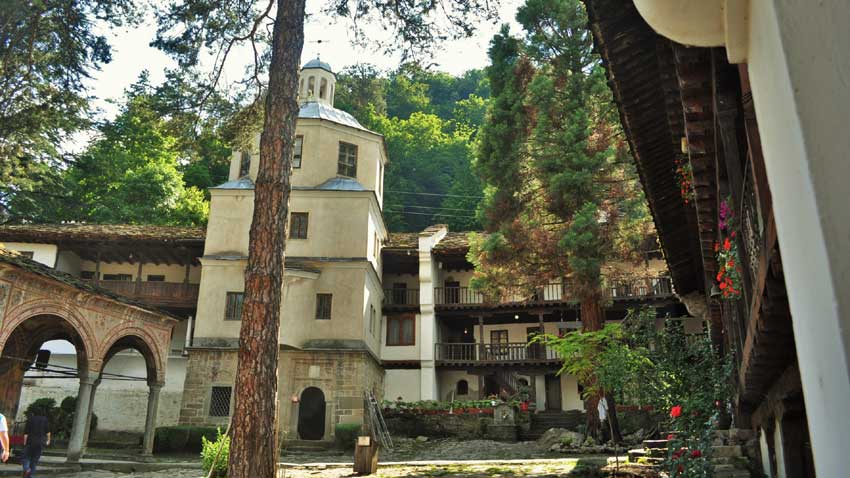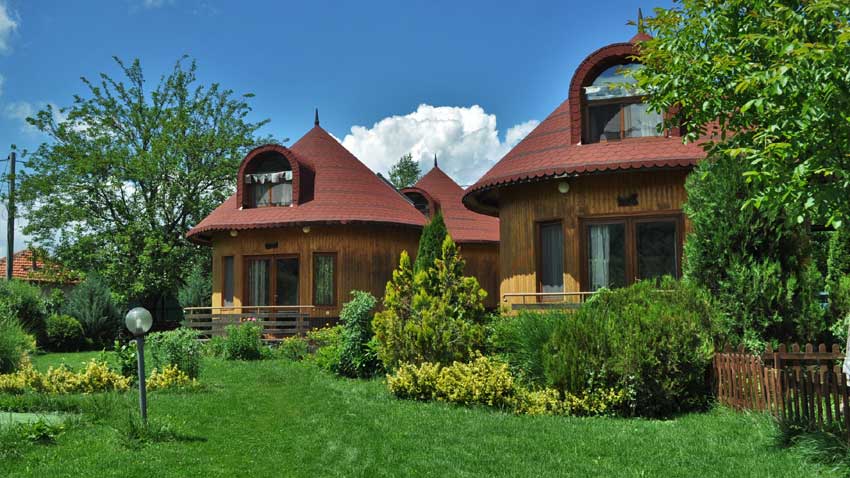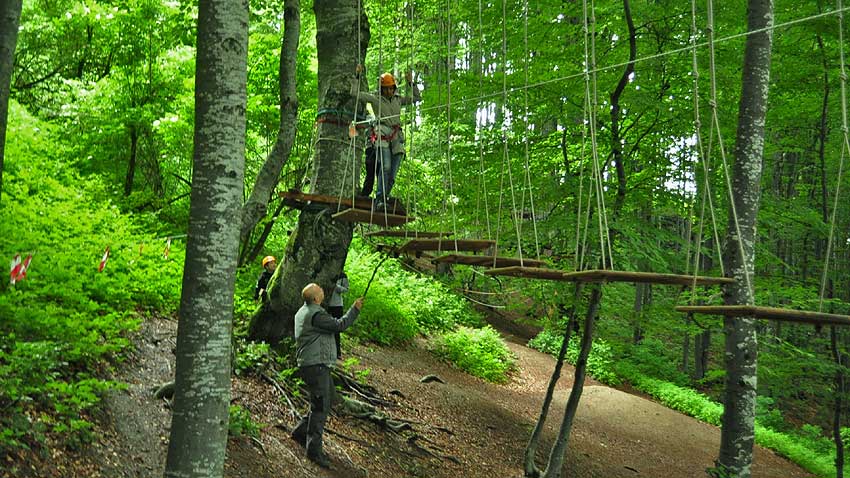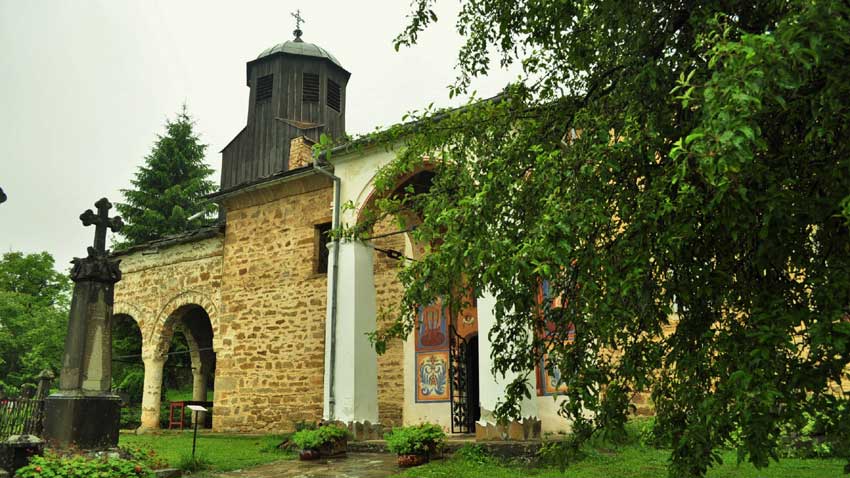For some time now, it’s been something of a cliché to talk about the ‘beauty of nature’, a concept hardly capable of capturing the splendour of places like the Troyan Balkan. As the summer heats up, the region is shrouded in lush greenery and its hotels and guest houses welcome their first visitors. Chiflik, Shipkovo, Beklemeto, Beli Osam, Oreshak and other charming resorts nestling in the mountains, are preparing for a successful summer season.

Threatening June skies and unprecedented rainfall have been unable to delay the start of the season in the Balkan region, which embraces a number of communities in the Stara Planina, among them Troyan. If hotel occupancy levels are anything to go by, nothing can stop lovers of the great outdoors spending their weekends or summer holidays in the Troyan Balkan, not even the rain. Managers of Eco Village Azareija, for example, certainly can’t complain about a lack of customers. The village has six round wooden houses with conical roofs. Built according to the rules of Feng Shui and resembling the nomadic Pro-Bulgarians’ yurt huts, they’re always fully occupied.

The Azareija village’s hosts teach their guess how to distress and reenergise, how to eat healthily and to enjoy life. The training of course also includes interacting with the region’s natural environment, a source of positive energy and an indispensable healer. And of course you learn how to overcome fatigue, aches and pains and gloom and doom once you’ve set off on your way up the Stara Planina Mountain. Some of the mountain paths lead you to unexpectedly beautiful places like the village of Gumoshtnik, twenty kilometres from Troyan. Located on the banks of the Vidima River, is best known as the home of no fewer than eight victims of the Titanic disaster. A modest memorial to them stands in the grounds of St. Nikolai Lenti church. This old chapel, built 175 years ago, is notable for its size and its unique, enchantingly beautiful iconostasis, itself a genuine masterpiece of the wood-carvers’ art. In the past, Gumoshtnik had a population of more than fifteen hundred, and the local children received the most up-to-date education available at the time. These days we look with curiosity at the wooden desks with their sand sprinklers, slate pencils and ink-wells, and the slates used by the children for writing and doing sums, with their wide and narrow lines, all so unfamiliar to us living in the internet age.

Quite apart from all that, there’s no shortage of ways of being active and getting the adrenaline pumping! Even if the weather is awful, the Squirrel Rope Park in the resort of Beklemeto is still open for business as usual. “Our oldest climber was a seventy-five-year-old woman, who heroically tackled all the obstacles – and they’re certainly not easy,” says attraction park owner, former soldier Milko Chakarski.
“Our park is made up of different ropes, nets, ladders, beams, rip wires and Alpine climbs. In a word, it’s an ideal place for young and old to enjoy themselves. The park opened six years ago but we’re constantly improving and adding to it. Last year, for example, we installed a new children’s playground. This year we’re going to give the place a thorough make-over and add two or three new attractions for people looking for a real buzz.”
The region is a well-known spa destination, mainly due to the hotels in Chiflik and Shipkovo. Guests from Bulgaria and abroad relax in the local spas and open-air mineral baths – and not just in summer. When snow covers the area, people rush to the outdoor baths to unwind in the warm, steamy mineral waters. Over the last few years the authorities have made a real effort to publicise local tourism, launching numerous projects with European funding. The major of Troyan, Donka Mihaylova, set herself the target of transforming the mountain municipality into a model of sustainable tourism.

“We’re also working on recreating the Via Trajana,” she told Radio Bulgaria. “It’s a Roman road which used to connect the Danube and the White Sea and crossed the Balkans through our region. One of the most important finds from the time is the Roman town of Sostra, which goes back to the second century. We’ve got six of these sites in our region, which were all connected by a special road. It’s interesting that an ancient path leading to mineral springs runs along the route of the Via Trajana. So there was a time when Trajan built roads along the very route of these healing waters.”
There’s no end of things to say about the beauty of the Troyan Balkan, its settlements from the time of the Bulgarian national revival, ancient crafts, mellow plum brandy, tasty pastries, its many festivals and attractions. At the Aydushko Sborishte locality near the village of Balkanets, for example, you’ll have the chance to shoot with bows and arrows, ride horses and, if you book in advance, to be kidnapped by bandits. In a word, the Troyan Balkan is full of surprises.
English: Christopher Pavis
Photos: Veneta NikolovaBulgaria abounds with diverse nature and beautiful places that anyone would love to visit even more than once. Many tourist destinations are accessible by train. To assist people looking for options for nature walks or trips to other cities during..
More than two million international tourists are expected to visit Bulgaria in the coming winter season, interim Tourism Minister Evtim Miloshev told Nova TV. In total, more than 3.2 million foreign visits are expected, including one-day and..
In the search for scientific facts, researchers of ancient civilizations and cultures also come across fake news created by people in the past. The most interesting thing is that the ancient people often did it in the name of cultural..
The ski runs in the three major winter resorts of Bulgaria - Borovets, Bansko and Pamporovo, are well covered with snow before the official start of the..

+359 2 9336 661
